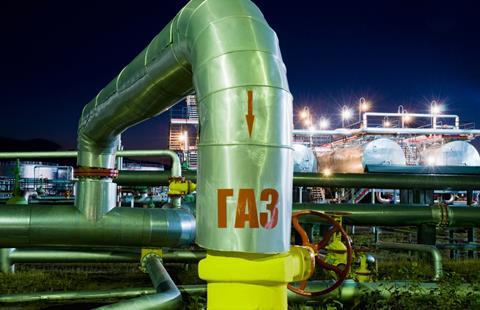Gas price increases likely to be passed on to customers, EIUG says
Manufacturers of energy-intensive building products have warned of price increases in materials such as steel and bricks following Russia’s decision to invade Ukraine.
Richard Leese, chair of the Energy Intensive Users Group (EIUG), said further gas price volatility from the conflict is the “last thing manufacturers need” coming off the back of a 60% increase in wholesale gas prices in the six months to November.
He added: “Prices have gone up and how long they will remain high is due to what happens and how long this military action continues. From an EIUG point of view it is more prolonged pain.”

Leese said members of EIUG – including manufacturers of steel, chemicals, glass, cement and bricks – will have to try and pass on extra costs to building industry customers “as much as they can”.
He added: “Where they can’t pass on the cost either due to contractual restrictions or because they are facing competition from imports, then there is potential for a loss of businesses.”
Leese said that even though the UK does not receive gas supplies from Russia, countries that do may end up sourcing gas from the same suppliers as the UK, particularly liquified natural gas from Qatar, potentially fuelling further inflation.
Also read: Is construction ready for a full blown energy costs crisis?
Also read: Gleeds prepares to move Ukraine office as Russians reach Kyiv
The price of UK natural gas shot up to 323p per therm yesterday as the assault on Ukraine got underway - substantially higher than the 160p to 190p per therm it was tracking at throughout January and February – before dropping to 228p per therm today (Friday). Thursday’s spike is still below the 451p per therm high on 21 December.
EIUG is campaigning for the government to provide more subsidies to help energy intensive users cope with energy price inflation. It argues the UK’s electricity costs are higher than other European countries due to several factors, including fewer subsidies for decarbonisation policy costs, the UK’s gas-heavy energy mix and a relatively high carbon price.
Earlier this month the EIUG warned that the government’s levelling up ambitions could be hit if manufacturers have to absorb the hit to their profit or pass the costs on to customers, who may decide to shop abroad for products.


























No comments yet